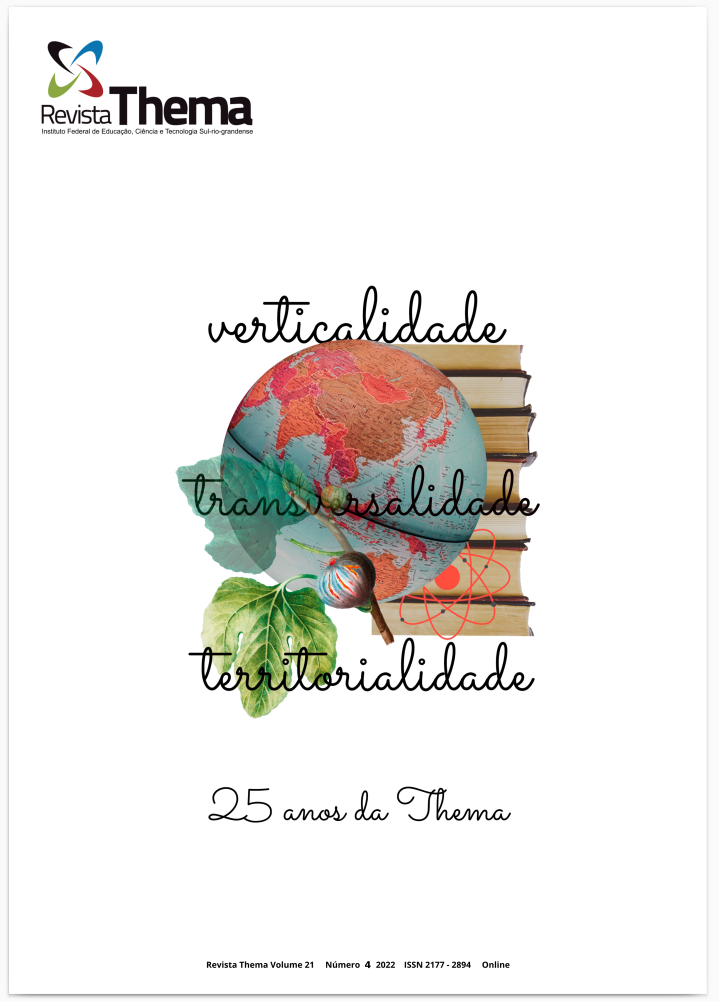Water quality evaluation of the Ijuí River using the micronucleus test in fish
DOI:
https://doi.org/10.15536/thema.V21.2022.1008-1015.2925Abstract
The main sources of contamination of the Ijuí River are surface runoff from crops and domestic sewage. The micronucleus test (MN) in fish is a useful tool in the assessment of water quality, indicating the presence of toxic substances. This study aimed to evaluate the water quality of the Ijuí River using the MN test in a native fish species. Specimens of the Characidae family were collected in winter and summer at two points on the Ijuí River, approximately 170 km away, which have agriculture as the main economic activity, but differ in population density. The MN frequency showed no differences between the sites. However, at both points, the frequency of MN in summer (2.15‰ and 2.13‰, at points 1 and 2, respectively) was significantly higher than in winter (0.35‰ at point 1 and 0 .45‰ at point 2). There were no significant differences for the other nuclear abnormalities. The results indicate the occurrence of temporal variation in the mutagenic contamination of the Ijuí River water, which may be related to agricultural activities, since summer is the period when agricultural pests are more frequent in the region.
Downloads
Downloads
Published
How to Cite
Issue
Section
License
O autor responsável pela submissão representa todos os autores do trabalho e, ao enviar o artigo para a revista, está garantindo que tem a permissão de todos para fazê-lo. Da mesma forma, assegura que o artigo não viola direitos autorais e que não há plágio no trabalho. A revista não se responsabiliza pelas opiniões emitidas.
A Revista Thema é de acesso aberto (Open Access), sem que haja a necessidade de pagamentos de taxas, seja para submissão ou processamento dos artigos. A revista adota a definição da Budapest Open Access Initiative (BOAI), ou seja, os usuários possuem o direito de ler, baixar, copiar, distribuir, imprimir, buscar e fazer links diretos para os textos completos dos artigos nela publicados.
Todos os artigos são publicados com a licença Creative Commons Atribuição-NãoComercial 4.0 Internacional. Os autores mantém os direitos autorais sobre suas produções, devendo ser contatados diretamente se houver interesse em uso comercial dos trabalhos.





